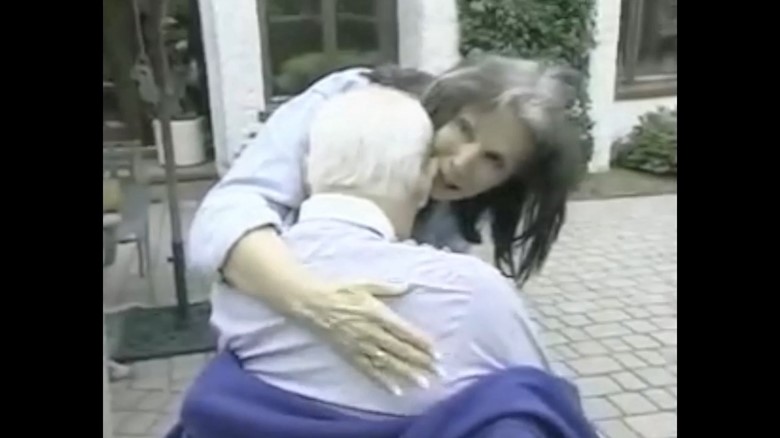Transcript
Title: Noticing the Early Signs of Alzheimer's
Subject: Meryl Comer
My husband, Harvey, was around 57 when the signs first began. I was 48 years old. I wasn’t a scientist, neurologist, but I spent more than two decades trying to decipher what was going on in his head. It was just crushing to see how unfair it was for such a smart man to lose pieces of his independence and intellect. No new short-term memories stick. His internal navigation compass seemed to shut down. And, you know, each brain unravels in its own quirky and idiosyncratic way. So, I always say that his disease became my crossword puzzle.
He was your classic what I call mad scientist, papers all over the place in disarray. But he could always pull the paper that he was looking for out of the pile. And it was when that pile became chaos for him that I was concerned. A second flag for me was that we live ten minutes from his work, and he had worked there for 30 years, and he got lost on his way home. And the third flag was the change in temperament. I called it the garden variety grounds for divorce, quick flashpoint, not the classic Harvey who had a great sense of humor. There was just something very different about him much more aggressive. No interest in things that usually engaged him, sports, other activities. I just knew that something was going on. I wasn’t sure what. I thought, well, maybe he’s had a bad day at work, and I'd ask him, and he’d say, oh no, everything’s fine. The irony was that at work they were beginning to notice behaviors and they thought, oh, he must be having problems at home. But neither the people at work nor I spoke with each other, respecting the privacy both of the workplace and of the home. So, that really delayed the flags, but the warnings were up there.
Harvey’s behaviors to avoid diagnosis were classic. He changed the conversation. He would make a joke. Might’ve been the joke he made over and over and over again, but the doctor wouldn’t know that, and you only see doctors for 10-12 minutes. I'd be sent out of the room. The doctor would talk to him and say, oh, he seems in pretty good shape. And I'd say really? And I would hand them my notes. It took 4.5 years before my husband was formally diagnosed with the disease.
One of the reasons that Harvey was not diagnosed is that smart people hide out very well. There’s a lot of faking going on and you really have to listen and pay attention. I hear the disease these days, unfortunately. I can walk in a room and move and listen to conversations by three or four people. The person telling the story five minutes later falls into the same story. That's not unusual. They ask to be reminded, what did I just say? So, they’re looking for queuing. And here’s a case where you do need to pay attention, because the wife or the adult child, we fill in. We fill in when they fail because we want to keep things as normal as possible. So, we, in fact, are hiding out with them to keep things as normal as possible.



Add new comment